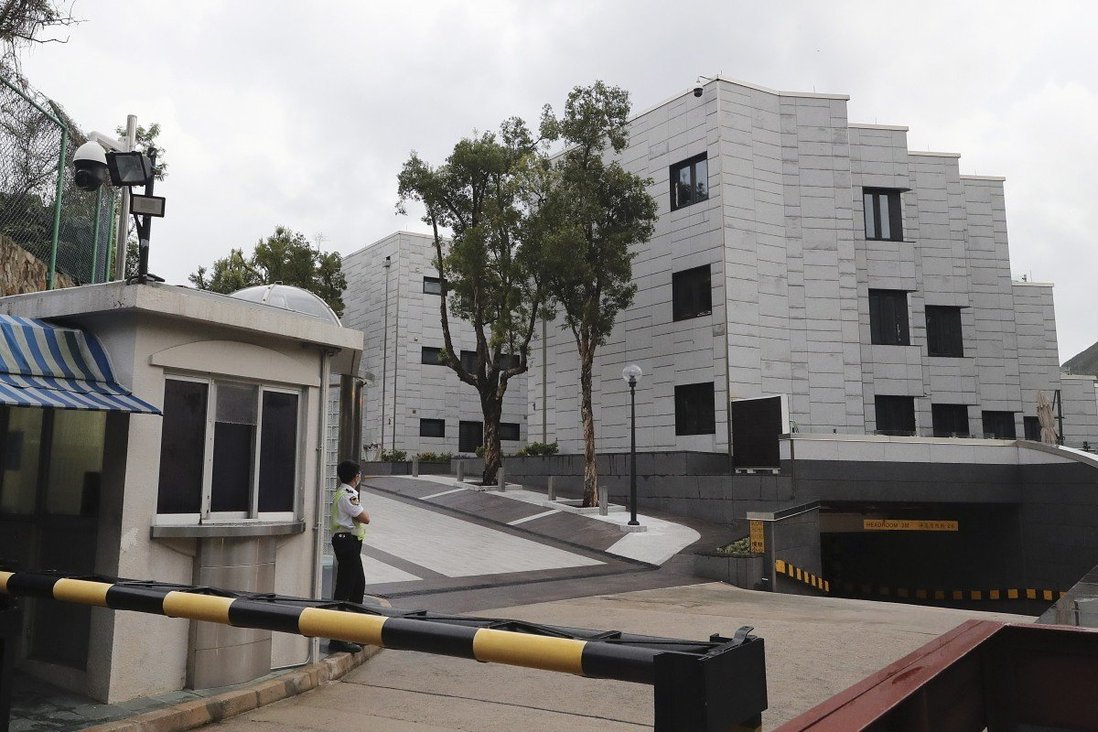Hong Kong News

US-China spat lands Hang Lung’s US$132 million in limbo over villas
 Exterior of 37 Shouson Hill Road, which has found itself at the centre of a diplomatic spat.
Exterior of 37 Shouson Hill Road, which has found itself at the centre of a diplomatic spat.
Hang Lung Properties, the Hong Kong buyer of the US government’s real estate asset in Hong Kong, may have up to HK$1.027 billion (US$132.5 million) in limbo, as its purchase has been caught up in the souring diplomatic relations between Washington and Beijing.
The developer paid HK$257 million as the 10 per cent deposit for the HK$2.57 billion Shouson Hill villas on The Peak, with another HK$770 million to Hong Kong’s government as stamp duty, according to Hang Lung’s financial results filed with the Hong Kong stock exchange.
The purchase of the six multistorey villas at 37 Shouson Hill Road, originally due for completion on December 30, has been held up because Hong Kong’s Land Registry on December 21 declined to certify the transfer of titles, citing diplomatic obligations between China and the US that should not be regarded as an ordinary commercial activity. Both the seller and the buyer of the property had been in talks to resolve the matter, Lo said.
“Now we are closely communicating with the seller through lawyers on both sides,” Hang Lung’s chief executive Weber Lo said during an earnings press briefing. “We are still prepared, willing and able to proceed with the transaction.”
The deal now hangs in the balance while the direction of US-China relations remains to be seen under Joe Biden’s new administration.
The US government must submit a written application to the Chinese government via the Office of the Commissioner of the Ministry of Foreign Affairs of China in the city with at least 60 days’ notice, Hang Lung said on December 21, citing an advisory from the Chinese government to the local authority.
“As we said in the announcement, this property is not a normal property. It requires them to fulfil diplomatic obligations and requirements, which is beyond the extent of our control,” Lo said on Thursday. “Of course we do not know whether they finished the diplomatic obligations and procedures.”
Kwan Chuk-fai, director of corporate communications and investor relations, prevented Hang Lung’s management from answering questions from the Post about whether the developer would take action against the seller, agent or lawyers involved after the unprecedented delay.
One of the largest developers of commercial real estate in Hong Kong, Hang Lung swung to a net loss of HK$2.57 billion last year after accounting for a revaluation loss of HK$6.77 billion, from a net profit of HK$6.17 billion in 2019.
Its underlying net profit fell by 6.1 per cent to HK$4.2 billion, excluding changes in fair value of properties. The board proposed a final dividend of 59 Hong Kong cents per share, the same as in 2019. The share price of the developer fell 1.2 per cent to close at HK$21.1 on Thursday.
The developer declined to venture whether the deal would be more likely to receive China’s blessing under the new US administration, or to say if it regretted the purchase.
Whether Hang Lung could get compensation, or even its deposit back, in the event that the deal does not go ahead, is unclear without analysing the full text of the contracts involved, said Polly Chu, a partner at the law firm Withers. The HK$770 million stamp duty may be refundable upon application if the agreement is terminated, she said.
“The consequences, including whether the party can get compensation or the deposit back, really depend on the terms of the agreement and the circumstances of the case,” said Chu.
“The parties may consider alternate solutions – supplemental agreement, settlement agreement or termination agreement, depending on the situation.”
The US consulate said it had complied with the relevant obligations and requirements, and argued that “diplomatic obligations applicable to the sale of the property are matters between sovereignties and would not affect title of the property”, Hang Lung said in its December 21 filing to the Hong Kong stock exchange, citing a letter by the US representative office.
A spokesperson for the US Consulate General said more time was needed “to complete the administrative processes required for closing on the property”. The State Department is “not at liberty to comment on the specific terms of ongoing contractual transactions”, he added.











